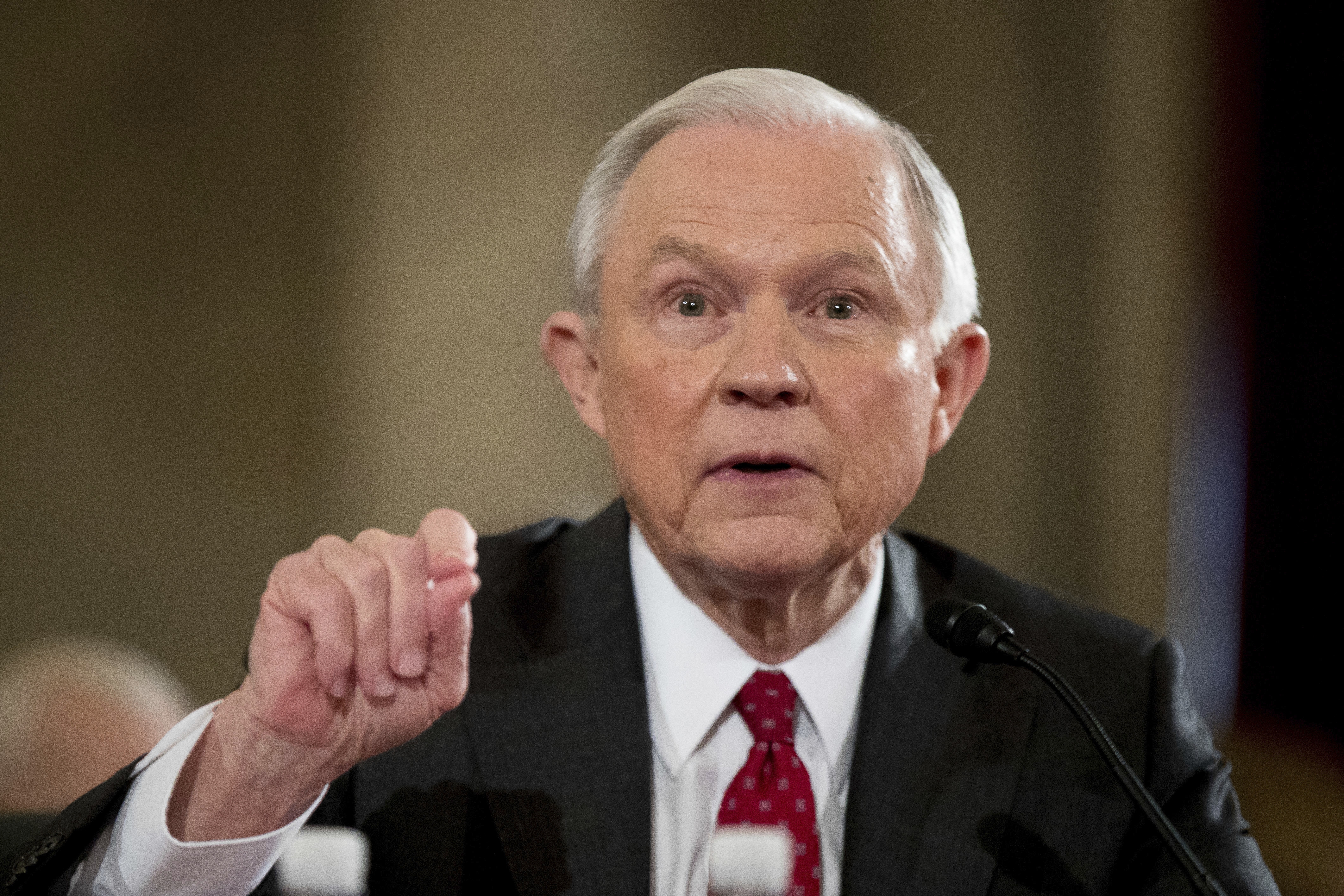
Senator Jeff Sessions testifies before the U.S. Senate Judiciary Committee on January 10. He was nominated for the position of United States Attorney General .

Senator Jeff Sessions testifies before the U.S. Senate Judiciary Committee on January 10. He was nominated for the position of United States Attorney General.
Raymond Arke | Asst. News Editor
A new president means a new administration. Sometimes, however, appointees can draw plenty of controversy.
Sen. Jeff Sessions of Alabama, the nominee for Attorney General, has garnered significant scrutiny since he was picked for the job. On Jan. 10 and 11, he faced in his hearing a national letter of over 1,000 law school professors opposing his nomination — two of whom are from Duquesne.
Tiffany Sizemore-Thompson is an assistant clinical professor and supervises several law clinics at Duquesne. She decided to sign the letter opposing Sessions because of his stances on civil rights and to support other professors who shared her opinion.
“The record of Senator Sessions suggests that he would roll back the progress by the Obama administration that many lawyers and advocates have spent their entire careers trying to enact,” Sizemore-Thompson said.
The other professor to sign the letter was Tracey McCants Lewis, an assistant clinical professor who also teaches at Duquesne’s Civil Rights Clinic and Unemployment Compensation Clinic.
Sessions had been a U.S. district attorney, Alabama’s attorney general and a U.S. senator for 20 years before his recent appointment, according to Geoffrey Skelley, a political analyst at the University of Virginia Center for Politics.
Skelley explained why Sessions has been a polarizing nominee.
“The controversy stems from incidents in Sessions’ past that have led to claims that he’s racist or at the very least racially insensitive,” he said. “In 1986, for example, his nomination for a federal judgeship was shot down after testimony about past racially prejudiced comments came to light.”
According to CNN, some of these past comments included Sessions saying he thought the Ku Klux Klan was “Ok until I heard they smoked pot,” something he insists was intended as a joke. Sessions had also been quoted as calling the National Association for the Advancement of Colored People and the American Civil Liberties Union “un-American” and “communist-inspired.”
Even though Sessions has a cloud over him, Skelley predicts the Republican majority in the Senate will have no problem confirming him. The Senate Judiciary Committee will vote on him on Jan. 30, and then the vote will move to the entire Senate.
Sessions routinely denied charges of racism during the hearing, according to a variety of news sources.
Part of Sizemore-Thompson’s opposition to Sessions comes from his time as attorney general of Alabama in the 1990s.
“He supported pushing juveniles who had multiple juvenile court appearances into adult court,” she said. “He also wanted to move funding from the Department of Corrections to make more space in jails for children and create more boot camps for them.”
His support for trying children as adults was something that Sizemore-Thompson couldn’t stand for.
“I strongly oppose charging children in criminal court and placing them in adult prisons,” she said, adding that there is “overwhelming neuroscience and social science research that suggests it’s both a legally and morally wrong decision to try and sentence children as adults.”
Some of Session’s recent actions also concerned Sizemore-Thompson. She said she didn’t like his opposition to The Sentencing Reform and Corrections Act, a bill supported by prominent Republicans, which would have gotten rid of mandatory minimum sentencing.
“Mandatory minimums are truly an outdated mode of sentencing that even many judges dislike because it removes discretion to look at the lives and circumstances of individual people coming before the court,” she said.
Sizemore-Thompson is worried about his appointment would mean for reform.
“I’m deeply concerned that Senator Sessions’ record – both past and present – around criminal justice issues suggests that he would be an Attorney General who is not responsive to progressive, humane, evidence-based reform efforts of a system that shows itself to be deeply broken on a daily basis,” she said.
It’s important that people pay attention to the decisions of power holders, Sizemore-Thompson believes.
“The Attorney General is an extremely powerful member of the federal government that sets the civil rights and criminal justice priorities for our nation. He or she decides what voices will be heard and which will be silenced around critical issues like discrimination and justice,” she said.
Sizemore-Thompson said that Session will make decisions that could “have great potential to affect our everyday lives.”
McCants Lewis had concerns over Session’s stances on civil rights, especially on police misconduct and voting rights.
“My primary concern was related to Senator Sessions’ position on voter fraud. Voter fraud is a myth that has been disproven time and time again, yet Senator Sessions continues to purport that voter fraud and illegal voting is a major concern across the United States,” McCants Lewis said.
She cited a case from his time as a U.S. district attorney in Alabama as something she disagreed with.
“Senator Sessions was the first US Attorney to charge civil-rights activists with voter fraud since the Voting Rights Act became law in 1965. Those persons charged were acquitted by a jury of all charges,” McCants Lewis said.
McCants Lewis hopes the questions around Sessions will spark interest in examining all presidential nominees.
“I hope the letter brings awareness to the citizens to look at the qualifications of our leaders,” she said. “An informed electorate is a smart electorate.”



